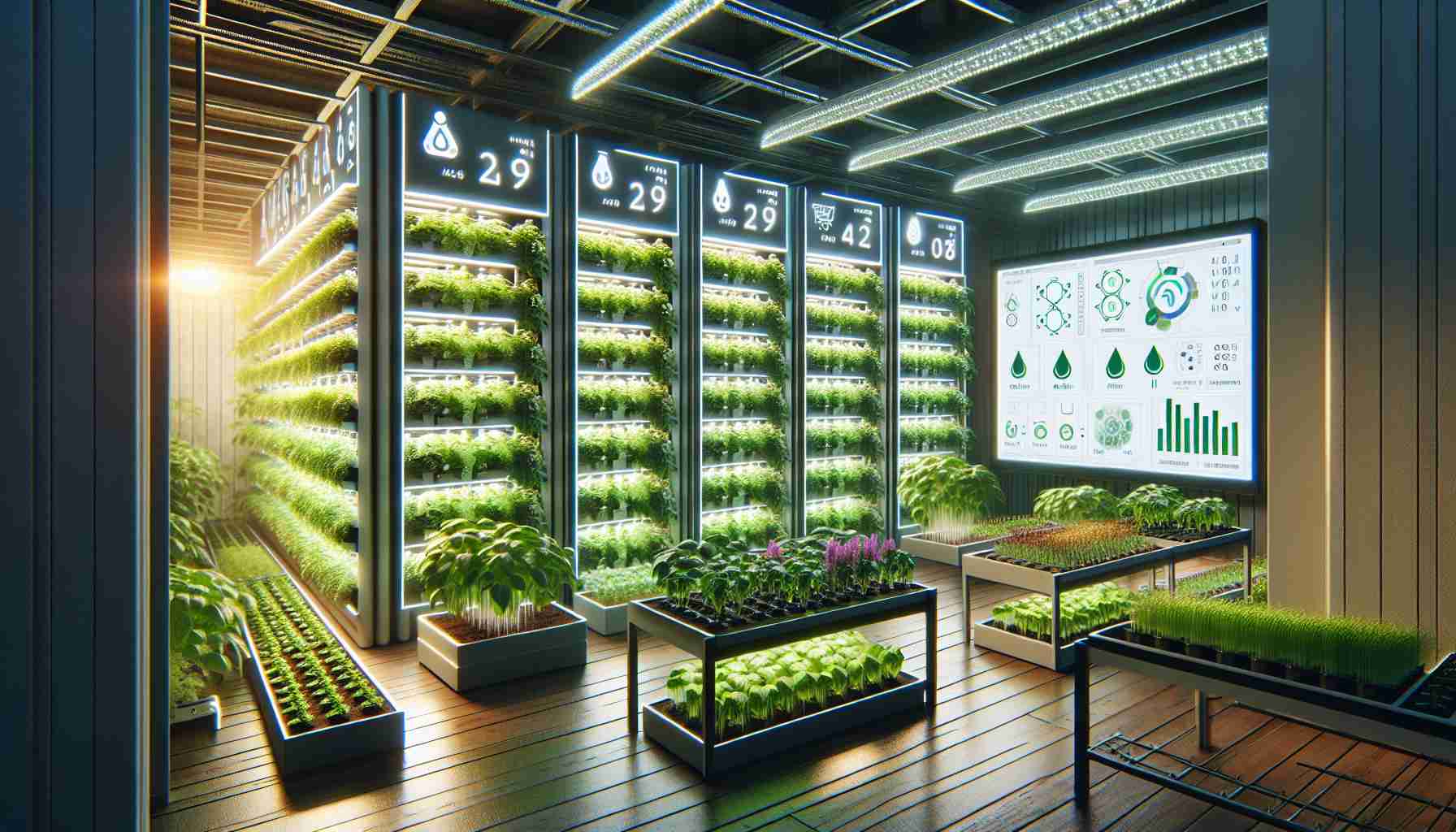Recent studies conducted by engineers at Cornell University indicate that the incorporation of artificial intelligence (AI) into current climate control systems for indoor agriculture could potentially decrease energy usage by up to 25%. Benjamin Decardi-Nelson, a postdoctoral researcher at the university, emphasized that integrating AI on a global scale in large-scale farming operations equipped with complete lighting and climate management can enhance critical processes like photosynthesis, transpiration, and respiration in crops.
Their research, published in the journal Nature Food, argues that existing climate management systems in cultivation facilities are not sufficiently advanced. While ventilation methods can reduce energy consumption, they often disrupt plant growth by impacting carbon dioxide levels and humidity. AI can be utilized to develop regulation strategies that effectively handle these environmental factors.
Using methods like deep reinforcement learning, the team assessed lettuce growth in various indoor farming locations across the United States, as well as in Reykjavik, Iceland, and Dubai, UAE. The findings revealed a significant drop in energy consumption—from 9.5 kilowatt-hours per kilogram to 6.42 kilowatt-hours—where AI technologies were applied. Moreover, in warmer climates like Dubai, energy use decreased from 10.5 kilowatt-hours to 7.26 kilowatt-hours.
This research indicates a clear path towards creating smarter, more energy-efficient farming systems that align with sustainable practices. It highlights the urgent need for advancements in agricultural technologies to ensure long-term viability and resource preservation.
Innovative Insights: Tips and Life Hacks from AI in Indoor Agriculture
The integration of artificial intelligence (AI) into indoor agriculture is not just a technological advancement; it opens up a treasure trove of opportunities for improving efficiency, sustainability, and even everyday practices related to plant care. Here are some tips, life hacks, and interesting facts inspired by recent studies on AI’s impact on climate control systems for indoor farming.
Create a Smart Growing Environment: If you’re growing plants indoors, consider investing in smart sensors that monitor humidity, temperature, and light levels. These devices can help mimic the AI-enhanced environment described in studies, promoting optimal growth and reducing waste.
Optimizing Energy Usage: Use AI-powered applications that analyze energy usage patterns in your indoor gardening setup. These apps can optimize your lighting and climate controls, just like the systems studied in the research, potentially reducing your energy bill.
Utilize Renewable Energy Sources: Take inspiration from large-scale farms incorporating AI by integrating solar panels into your indoor agricultural projects. This approach can further decrease energy consumption and align with green farming practices.
Water Conservation Techniques: Research on AI in agriculture highlights the importance of effective resource management. Implement drip irrigation or self-watering systems in your indoor garden to conserve water—ensuring your plants get what they need without waste.
Embrace Sustainable Materials: Whether it’s using biodegradable pots or eco-friendly growing media, sustainable materials play a role in reducing environmental impact. Pairing these materials with AI-enhanced growing systems can maximize your garden’s efficiency.
Understand Plant Needs: Just as AI evaluates plant growth conditions, take time to study the specific needs of each plant you cultivate. Tailor light, water, and nutrients to individual requirements, thus maximizing growth potential.
Stay Informed on Technological Advancements: The field of AI in agriculture is rapidly evolving. Keep yourself updated about new tools and technologies through resources such as Nature and technology blogs focusing on agricultural innovations.
Connect with Community: Engaging with online communities or local gardening groups can provide you with valuable insights and tips on implementing technology into your indoor farming practices.
Experiment with Crop Varieties: AI helps in optimizing crop growth. Don’t hesitate to experiment with different varieties of plants to see which perform best in your setup. This can lead to discoveries that enhance both growth and energy efficiency.
By embracing these insights from AI’s role in indoor agriculture, you not only contribute to a sustainable future but also enhance your gardening experience. The integration of intelligent systems in farming signifies a promising direction toward more responsible environmental stewardship.








